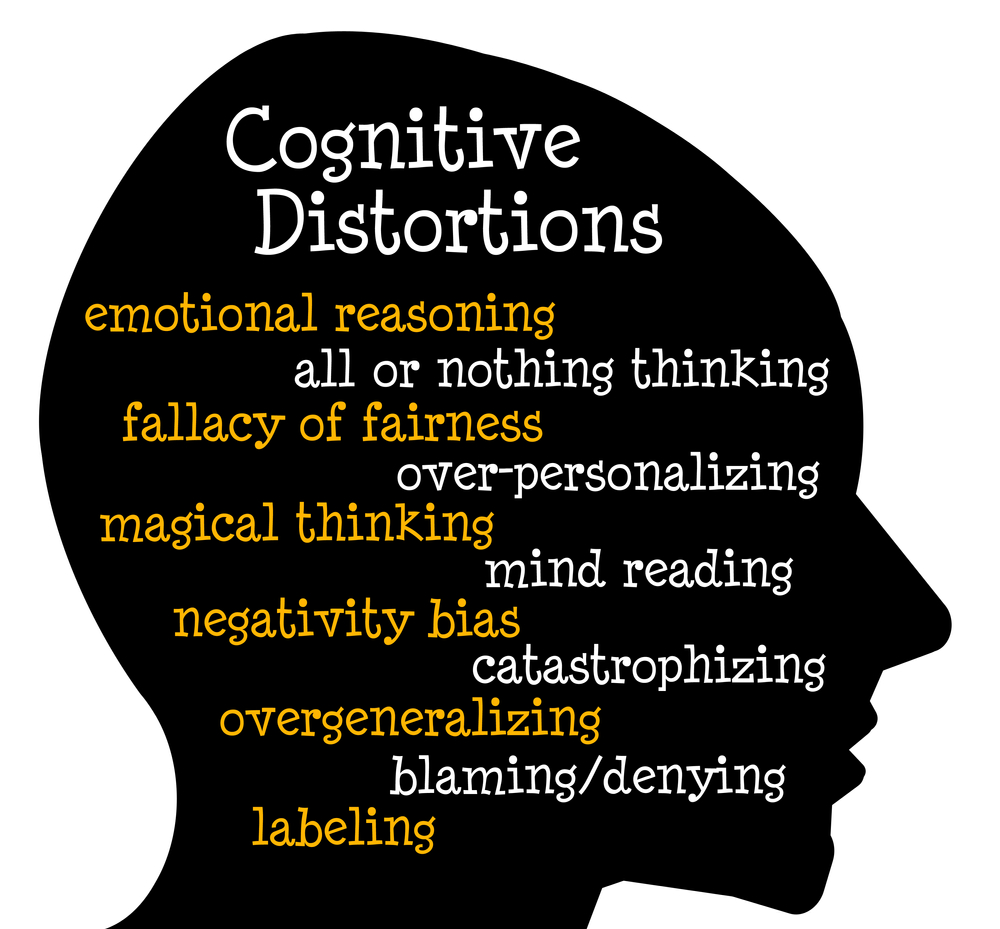Hi, welcome back to this week’s renewal session. Katie and I are going to talk to you this week about coping strategies. Katie, when you hear the word coping strategies, what do you think? Um, I automatically think, Ooh, which 1:00 AM I going to do? Oh my God. I don’t know. I don’t have a strong reaction. No, you definitely do. Because coping strategies and pie, you got something you got to cope with, I guess that’s true. Yeah. I just don’t automatically think of like one kind of coping strategies. I gotcha. I gotcha. Well, in fact, there are five types, so I’m to blow your mind with these and hopefully these will be helpful for people because you can Pinterest coping strategies. Did you know that? I think you can probably print Pinterest anything, but I do. I do believe that there are a fair amount of things on Pinterest about coping skills.
Katie (01:33):
Yeah. I’ve, I’ve definitely done my digging on Pinterest and found quite a few. So that’s a good resource. You started those binders full of, uh, different kinds of worksheets and stuff. And I treasure trove of, uh, of coping skills. I don’t know where that binder is. The digital version of it. I, yeah, I went, I looked for my external hard drive and I couldn’t find it. So I’m going to have to do some more digging, but, um, that would have been very helpful for tonight’s episode. That definitely my brain. Okay. So let’s start with defining what a coping strategy is first and foremost. Okay. So the definition that we’re going to use for that is these are tools and techniques that you can use to help handle your difficult emotions, reduce stress, and maintain a sense of internal, emotional regulation. I feel like that’s a pretty good definition, don’t you?
Mary Ann (02:28):
Yeah. I feel like that’s pretty all encompassing for sure. Yeah. So, so we’re, you know, I think a lot of times I just want to kind of put this disclaimer out there because I feel like a lot of times, when you tell somebody to use a coping strategy in the midst of being dysregulated, it can feel like you’re kind of blowing them off. Yeah. Do you feel ever, like if you were upset with me and you’re like, mom, blah, blah, blah. And then all of a sudden I said to Katie practice, your deep, you would definitely fly me the bird. Oh, maybe worse. Yeah. I’d be very upset. I’d be very upset. So that’s why I want to recognize the fact that, you know, some of these are going to see the same simplistic or at times if they’re suggested by another person, they can feel like condescending.
Mary Ann (03:23):
And so we were going to frame these as these are skills that you should always have in your back pocket to pull out in times of feeling like overwhelmed, stressed out and you have difficulty regulating your emotions. The challenge is that when we’re dysregulated, a lot of times we’re thrown into a different part of the brain, like fight and flight and fight. And then what happens is all the strategies go out the window. Right? So we want to, we don’t want to only use our coping strategies reactively. We want to use them proactively. So that’s why we’re going to talk about them. Yeah, totally. They should be like a habit. So that way, when a crisis does come, you already know it works. You already. Yeah, exactly. There’s nothing worse when like you’re hyperventilating and somebody does says, you know, do some deep breathing and then you do the deep breathing and it doesn’t even work.
Mary Ann (04:15):
Right. Or like play with therapy sand. Like if I, if like, if I played with therapy sand, normally that would come naturally to me. But when I’m having a panic attack and I don’t even own therapy saying that’s not a helpful thing to tell me, well, there is no way I would be playing with therapy, sand, cause vacuum next to me. Oh no. Then you need to get that like kinetics that just like cleans it. It’s actually very fun. Really. I recommend it. Okay. What’s it calling it? Um, I think they sell it as like moon sand watch the six L’s of men sand from our podcast episodes. They’re just going to skyrocket influencers. Yeah. There’s no, but it’s very, it’s very fun to play with. I would recommend it. Let’s talk about these different types of coping strategies. Okay, perfect. Go ahead. This is very clinical.
Mary Ann (05:12):
I’m going to give them names and then we’re going to go back through and hit him, hit him on their specifics. So the first type is what we call appraisal focused coping strategies. The second is adaptive behavioral coping strategies, right? And then we have emotion focused coping strategies. And under that we have proactive, reactive coping strategies, distraction techniques, right? Social coping. Now we all, I think can identify negative coping strategies. So we’re going to stick to the more positive ways of regulating ourselves and those tools and techniques. So let me go back really quickly to appraisal focused coping strategies and is exactly what it says. We’re going to take a look at what’s going on around us. We’re going to try to alter our reactions based on our end game. Like what’s my goals, what’s my value. What is it that I need to be addressing so that I get the desired outcomes of said event, whatever it may be.
Mary Ann (06:19):
One of the times that this happened to me recently was I had some things that I felt like I needed to get off my chest. Um, and like work out with someone. And the question I asked myself that is appraisal focused, right? Is will this change the relationship in any way? In other words, am I going to make myself vulnerable to saying, Hey, these things hurt my feelings or these things cause me distress. Is are they going to magically on their side go, oh gosh, I’m really sorry, Marianne. That wasn’t my intent. No, they weren’t. So it wasn’t going to be helpful to me to work through that issue with that person, because it might actually multiply the issues. Right. So that’s an appraisal focused. Okay. So now I’ve appraised the fact that this person is probably not going to respond to me in the way that I need them to, but I still have a problem. So I then go into that second level of like, okay, what, what adaptive, behavioral coping strategies can I use to address my problem? Like what can I do to take control? So I’m going to seek information, right? I’m going to evaluate perhaps the pros and the cons and my desired outcomes. And I’m going to adjust my behaviors.
Mary Ann (07:41):
Right, right. So, so I think we do those kind of naturally. And sometimes I feel like those, those strategies are, are used best. We actually aren’t completely dysregulated. Right? You need to be able to have our cognitive brain working in those ones. And a lot of times what happens is we get overwhelmed emotionally. And we actually go into what we call the limbic system. Right. Which is primal emotion stuff. So these strategies can be higher level strategies when it comes to solving problems, especially like maybe in a, in a workplace or things like that. Right. But the most, most of us hear about emotion focused strategies, right. And distraction strategies come under the, uh, coping strategies or skills come under that. So I know that you love, I love distraction. Okay. That’s for my favorite coping strategies. So how do you distract? Well, I, um, I’m a big fan of Amazon and I have an issue.
Mary Ann (08:50):
Well, listen, uh, Amazon prime day doesn’t phase me because every is Amazon prime day. So I actually, huh, that’s a preacher sister. That’s the truth. Literally people get so stoked about Amazon prime day. I go on, I’m like, I don’t even know what I’m looking for. Right. Well, and it’s all the stuff that you don’t really need that’s on sale. So it’s like not, yeah. So anyway, my recent thing that I’ve been loving doing though, is that I like if stressed out or if I just need to kind of remove myself from my daily emotions, um, I will go on there and use the found on Amazon hashtag that’s like on there, there’s like, I’ll show you that later, but you can go on there. Where’s it. Okay. So if you go into your Amazon app on your phone, it clicked the little settings thing at the bottom where you normally would go to get like your orders and stuff.
Mary Ann (09:45):
Yeah. And the top section, there’s a dropdown and it says hashtag found on Amazon. And if you click on it, it’ll take you to all these influencers that have bought stuff on Amazon and take you straight to the link. And I think it’s so fascinating, the things that people buy. And so I just sit there and I like Snoop through other people’s stuff. And it’s so like relaxing to me. I totally know why I, that I do that with that, um, app, like to know it. Yeah. Yeah. Well, I just like, it’s like window shopping to me. Right. And so it’s not like I’m buying anything. You do need to probably be careful if you have a tendency to have an addictive personality or if you have a tendency to overshop, I just need to make that statement. But I feel like for me, it’s like window shopping and it’s like, so it’s so pleasant because it’s all influencers.
Mary Ann (10:37):
And so everything is just pretty. And I just, yeah, I just think it’s so much fun. So that’s like one of my big distractions at the moment that I’ve been using. Okay. Um, and that kind of falls in the same category as like TV shows music. Right. So what are other things like you’re super overwhelmed, you’re crying, you’re having a panic attack, whatever. What does strategy, distraction strategy are you going to use in those moments? So I think that one that people avoid that also that actually is very helpful is doing something physical. Uh, I think a lot of people, when they get overwhelmed by emotions, what climb into bed, or they will isolate, helps them just sit in those feelings. And so distraction can be really helpful. And one way to do that is to get your body focused on other things, kind of like we talked about when we were talking about anxiety of giving your brain, something else to think about can be really helpful.
Mary Ann (11:32):
And so I love cleaning of any kind as a distraction, um, because the end result is good. I feel good mom right now. So I favor it way to distract myself is through cleaning. Well, I love it because then at the end I feel like I’ve done something and I’ve been productive and I’m like, you know, everything smells good. And you know, it’s just, I feel like just, I felt like cleaning is a really good distraction. Okay. I know we, we, we try to keep a time limit on this, but really quickly, but doesn’t, uh, doesn’t your fiance read like to clean because of the smell that lingers after a couple of days, am I making that up? No. Yeah. He, he absolutely does. He likes to do the floors. He’s like the floor guy, that’s like his thing and he loves to sleep and vacuum and mop.
Mary Ann (12:24):
And so he likes the only reason that he likes to clean is because the Fabuloso smells so good after he mops. Oh my God. And it like, it like lingers around for a day or two. And he’s like so proud of himself. Cause it smells so good for a little bit. So yeah. I definitely believe in the movement thing. And you know, one of the things that I try to notice and I tell my clients to notice a lot too, is do a body scan. Oh yeah. Start to notice like, okay, w this is a really interesting one. Okay. But you do the body scan and you particularly pay attention to your breathing. And there are lots of different techniques. People could look up like, what is it, four square breathing, these things. I think, but what I do is I will notice my initial breathing and I always hold my breath when I’m stressed out.
Mary Ann (13:19):
Right. And so, or it just stops like right under my chest line. So I, when I work on my breathing, I will lay down. Right. I actually prop my legs up a little bit. So my feet are on the ground, but my knees are in the year. You know what I mean? Right. And then, and then I practice breathing all the way into my pelvis. Keep doing that over and over again. I try to get the breath as far into my pelvis, because I believe, right. Like the further I get the breath down into my body, the more my, my whole limbic system, my blood flows different. I’m not so constricted. I’m reducing the stress, but it also becomes a challenge. Does that make sense? I’m like, okay. I got to breathe all the way into my pelvis. Oh, I didn’t get past my belly button. Okay. Do it again, Marianne. And that challenge alone is the distraction. But if you just told me, like, sit in the corner and breathe, I don’t know that I’d do that very long. I do that naturally. Like if you put me in a corner, I would be brief.
Mary Ann (14:27):
Okay. It’s the intentional. Now here I have a story about the four square breathing. I know that people love it. And I am proud of them and excited for them that they love it. I can’t figure it out. And here’s why the math does not add up to me. Okay. So the idea of four square breathing is that you imagine a square in your head, you pick one side of that and that’s your starting side and you start and you count for like, you count to four and you breathe in on that first line. And then you imagine yourself going across the second line and you’re holding your breath for that four count. And then on the third, third count, which is like down the side of the square, you’re letting that air out. Okay. Or over four seconds. Right. So then what do you do?
Mary Ann (15:19):
Like, I now have no air in me. I have another side to my square, but I have to wait until I’m allowed to breathe in. So sit there with no air for four seconds. So my square turns into a triangle and I have judgment about that for myself. So it just causes more issues. So anybody that has my four square breathing, such a scribble, right? Like, that’s like, that’s like such a fun, like funny thing to think, because it’s supposed to be a coping skill. And it is for so many people. I like can’t make my brain wrap around it. Like I just get so panicked in that four sec. Well, I get like, I can, like, I can hold my breath, like for four seconds. Like if you told me right now, stop, stop and hold your breath. I could do it. But for some reason do it, what you guys can see is I’ve got her on zoom.
Mary Ann (16:18):
Okay. That was like at least four seconds. But anyway, I’m just saying it turns into a triangle, the whole thing. So anyway, well, so that’s not for you, so that’s right. But that’s to say to that, I mean, everybody has coping skills that are not going to match perfectly with, you need to find coping skills that are helpful for you ahead of time and be proactive about that. So when the occasion does arise, you are not trying to make players and judge and triangles because that is no escalation. Yeah. The other thing that I ever hear talked about that I think is a killer. One is what we call what I call appreciation memories. And, you know, a lot of people will create some kind of, um, safe place, right? So when they become dysregulated to have the safe place and that’s the memory they go back to, right?
Mary Ann (17:12):
What I love is that this is in the same vein. So it can distract you back to a time where things really went in your favor, or you really felt loved, or a sense of control, whatever. And you go back and you fill out that memory in your mind using all five senses. So you try and create as much detail in that memory as you possibly can. And just that action begins to cool that limbic system down and begins to move you back into the ability to think logically. So I love that one. And again, I haven’t really heard that very many places outside of trauma therapy where you work on these appreciation memories. But I think the more we even do that in a proactive way in our life where we begin to look at our world with a sense of gratitude, accumulating these, you know, appreciation memory so that when a time comes, we can pull them out of the, you know, the toolbox, if you will.
Mary Ann (18:15):
Totally. Okay. So now we’ve, we’ve hit distraction, but now we’re kind of in this, it’s still emotion focused, but it’s processed coping skills. Right. And I think some of those process coping skills really involve more mindfulness because the process that we’re going to do is we are actually going to get ourselves more regulated. Right. So can you give me an example of something that you do that you feel like is emotion focused, but also processing focused? Cause I think I would say that one of my things is reframing. Like I reframe the situation from another person’s perspective or from the best perspective, like I just start to imagine, okay, well it could go this way versus this way. Can you think of like, something like that, that you do? Um, I think for me the processing, when you, when we first started talking about this, the thing that stood at me about the processing is it sometimes there’s not like an end result to too, right.
Mary Ann (19:26):
It’s like an active situation. So there’s no like real determined end to things. And I think that that can be an overwhelming feeling for people. And one thing that I’ve done to process emotion, but also to just like accept the emotion and sit with it and be okay and allow myself to feel that is, I love like overlapped journaling as what I’m going to call it. I don’t know if people have tried this before. Okay. I am not like a big fan of actual journaling because I feel like it takes too long. My brain has too many thoughts and it takes forever to write it. But for some reason when I I’m like a big art journal person, I love art journals. And so one of the things that I’ve done is I’ve, I started out by writing normal and I fill up the page and then I rotate it a quarter turn and I write over the words that I just wrote and I turned it again and I wrote right over the words I just wrote.
Mary Ann (20:22):
And what happens is it all kind of blends together into this like mush kind of thing. And I like to change up my colors. I like to write in different sizes depending on what I’m feeling. And so what’s, what’s cool about it is it ends up being kind of like a plate of spaghetti. So you can’t really read anything that you wrote, which allows your brain to kind of enter into like the hum of just writing and getting a stone and just letting it all out and focusing and accepting the feeling. And what happens for me normally is that I kind of just, I start off with all these really big, strong emotions. And over time we’ll have to talk myself down. And at the end you can’t read anything I said, but you can tell that there were a lot of feelings, if that makes sense.
Mary Ann (21:05):
Yes. I love that. I love that. Actually seeing your journal when, after a time that you you’ve done that. And I think it actually is like really beautiful because there is, there is a structure to it, but yet, like you said, you don’t see anything really specific. It’s not like you’re writing a sentence, you’re just writing perhaps a phrase or an idea or a word or any of those things. I think, I think another one, um, is for me when I think of like minimizing, reducing or preventing like things, right? One of the things that I do is I work through it at the very beginning of the day. I kind of set a vision for that day, right? Like this is my intention for the day. I usually have listened to a sermon or I’ve read a devotional or I’ve done some tapping, which we can talk about tapping in another, another time, you know, but I’ve done something that has created some anchor for my day.
Mary Ann (22:13):
And so that’s a proactive, coping skill that I have. And that way I can resource that verse or that, um, those moments, but I just start my day like that. And that has been so much better for me so much better because most of my mornings were I woke up and picked up my phone. I looked at Facebook, I looked at, you know, the news, I looked at the weather, I looked at the blah-blah-blah and next thing I know I’m on Tik TOK. I was like, really? This is a terrible way to start a day. Well, it sounds like, I mean, it’s like you’re putting your armor on at the beginning of the day. Exactly, exactly. And I think the other thing that I do is I allow my, I give myself permission to be able to seek some kind of social support. I think that instinct when we’re overwhelmed is to actually pull back sometimes or to just like emotionally vomit all over the place.
Mary Ann (23:07):
So I’m, I’m really referring to regulated boundaried social support. So, you know, for me, I’ve gotten back into the office after COVID and on my way to work now, I, I I’m back in my habit and I’m sure she’s thrilled to death. And if she’s listening to this, I hope she is. But I call my girlfriend on the way to work and we visit for a few minutes and I tend to call different people, you know, on my way home. But usually in the morning, I just, I call this one friend we talk and that just sets the day better to write. It could even be you for that matter or your father or a really good friend. And so for me, planning to stay connected to other people instead of withdrawing and isolating, when I’m having a hard time is a key way that I manage my stress.
Mary Ann (24:02):
Yeah. Just stay connected because, because anybody that knows me for any length of time will tell you I can hit life hard and really run a thousand miles an hour. And then I kind of emotionally crash and I go into hibernation and you might not hear from me socially for a month even. Right. Right. And so the practice of continuing to say in touch with people is a challenge for me or for my job. You know, some of it’s my job, but some of it is just, you know, the way I structure my life, it tends to be really busy. So anyway, I think that those are some really solid coping strategies. And I would invite everyone to use the final one and we use this one in our family a lot. And so Katie, we’re gonna take a couple seconds and tell people about this humor.
Mary Ann (24:55):
Yeah, yeah. Humor is well. Yeah. And I think that humor is a great way to diffuse intensity, um, and, and still allow room for that emotion. Um, but yeah, we, we, um, we use our fair share of humor. We like to make fun of each other. So like for example, right. So when I was, um, moving out to go to college, I was very emotional about that because I love my family people. Okay. I love my family. I’m a good daughter. And I just couldn’t, I couldn’t stand the idea of separating myself from them the hour drive to go to my university. I just couldn’t take it. You are literally making yourself set up like the victim. No, the mice we’ll need to know. The people need to know anyway. So I was just distraught. Okay. And it comes time to finalize all this stuff that I have.
Mary Ann (26:01):
Everything is in the living room, ready to be put in a car. And I just lost my mind. Right. Like the weekend before the weekend, I’m moving. I just lost my mind and like cried and was just like wailing, like so dramatic. And I’m like, I can’t be with you guys. I’m just, it’s too much. And I go to take myself upstairs in our house and I collapsed on the stairs because it’s just so distraught. So we have this trend in my family, my mother and I specifically, where, when I’m having an emotional crisis, that is a little bit unwarranted. I’ll give her that. When I’m having an crisis, my mother pulls out her camera and takes a picture of me and then shows me the picture of myself. And she’s like, do you see yourself right now? Like, this is what’s happening. Are you aware? Are you aware that this is, this is your reaction is, and I always am. I don’t know what to do. And I just lose my mind even more.
Mary Ann (27:19):
And it’s like this whole thing. Right. And then I go away for like 30 minutes and I come back and mom’s like, you are so ridiculous right now. Like you are fine. And show me the picture again. And she’s like, but can’t we just laugh. That is, so that is so true. And it was so powerful about that though. I mean, pull me out of the ditch of bad motherhood. Go ahead. Right. So she’s not that bad of a mom, but anyway, what’s so powerful about that is I have that reoccurring thing in my life where I know, oh my gosh. In the back of my head, I don’t even have to be with my mom when I’m freaking out. I will in the back of my head. I don’t think I’ve ever told you this mom, I will think, oh my gosh, this would be a hell of a picture on our way back from Michigan.
Mary Ann (28:06):
I should. I know that was quite the conversation, but now it’s just, it’s, it’s so funny too, because I have that thought in my head of my reaction to this event is like 10 times what it needs to. And so that humor of that picture diffuses that feeling a little bit and helps me kind of come down and realize I am off the wall, if that makes it. Yes. Yeah. I definitely think the goal of it now. Certainly those picture things started way back when you decided you were going to, um, wasn’t it like four, we’re going to like, yeah, I was going to run a way you’re going to run away. And all you took was your headband that had scarf glued on it. Oh, that was to American girl dolls. So you had to, you were in elementary school at this point a blanket. Okay. Maybe you had a blanket and I ran. I said, well, we’ll we’ll, we’ll, we’ll wait. You’re crying hysterically on the front steps. You’ve now sat and sat down because you were politely waiting, you know, some runaway kids just run away, but you sat and waited.
Mary Ann (29:14):
Well, make sure that you were aware of what you were losing and it didn’t get my camera. Cause it wasn’t on a phone then. Yeah. I actually had to like legitimately get my Nikon. So I think over the course of your life, we’ve probably had like a good 20, no 20 pictures easily. You got the ones with me and the parakeet too. Oh yeah. That was a good one. She got attacked by some birds. Did she, did she offer to help? No. She left this little eight year old with 10 parakeets on her and a cup of food in the bird house at the St. Louis zoo and pulled out her little Nikon power shot and took my picture. Hey, listen, that was a good camera. I had to get use out of it, but that little red mag, but you know what, for me having, you know, created my own trauma, having trauma happened in my life, whatever right? Humor has been a huge way for me to work through things. And there is actually like benefits, like health benefits to it. So laughing will reduce muscle tension. It’ll increase the flow of oxygen. Unless of course you hold your breath while you laugh, but it will increase. Don’t worry. I won’t be doing that.
Mary Ann (30:36):
So then exercise it exercises the cardiovascular system and it produces endorphins. All of which are strategy. There’s there’s every one of these strategies we’ve mentioned, there’s an actual neurological, physiological, physical, whatever you want to call it, benefit, benefit. And that’s really, so when we see these simplistic lists, we, we send, we see these simplistic lists and we can sometimes blow them off. But they’re actually incredibly helpful. Especially if you develop the habit before the breakdown happens, are they emotionally traumatizing difficult thing that happened on Tuesday. So anyways, so that, I’m glad that we are talking about this. I think we’re going to come back on another episode perhaps and like just revisit, like what are unhealthy techniques that we use to cope and why maybe those things need to be addressed in our lives. Totally. That would be fun. Yeah. Let’s out ourselves. Yeah. I think that’ll be helpful. I think people could just look at me and know what I do.
Mary Ann (31:51):
I mean, when you’re chunky, it’s kind of obvious. Do you cope with there’s other things. Yeah. And I’m just playing anyway. All right. I love you. You have one. What are you doing tonight? Uh, we rented, um, have you seen the insidious movies go on I’m with you guys on these films? Scary movie Kik. I think, uh, this is like Patrick Wilson is like in all of these movies and they are so good. Like I just, I don’t know. They’re really good. So we watched all the conjuring, like even the nun and like the curse of Leola, Rona, all the weird ones. And now we’re on to insidious and we rented it two nights ago and our 48 hour rental runs out at 11 o’clock. So we have, uh, about three hours to watch a movie. So, okay. Get this, you know what your father’s watching right now? I’m going to bet, probably hello, Dolly or singing in the rain.
Mary Ann (32:53):
I know my father and anybody that knows me on those. He loves a good heartfelt, happy go. Lucky me. I know he, there was a sweet moment. We went to see black widow last night and there was like this just any tiny, tiny moment of emotion shown at this dinner table. He reaches over and just like rubs my leg. Like, Hey it’s okay. And I looked at him and I go, you know, I’m not at that dinner table. Like I’m not comfort me. I was like, I don’t meet comfort meal. I want a guy. He’s great. I love him so much. You’re lucky to have him as a father. I am. That’s true. All right. Well, I will let you go. I love you. I will talk to you in this format next week. Love you. Bye guys. Bye.
Speaker 1 (33:55):
Thanks for tuning in to the renewal session podcast. If you want to continue the conversation or share your takeaways, we want to hear from you head on over to our instagram@therenewalsessionorourblogatrenewalsession.com and comment on your favorite part. New episodes are dropping each Thursday and we can’t wait for you to tune in next time.









PLEASE COMMENT BELOW